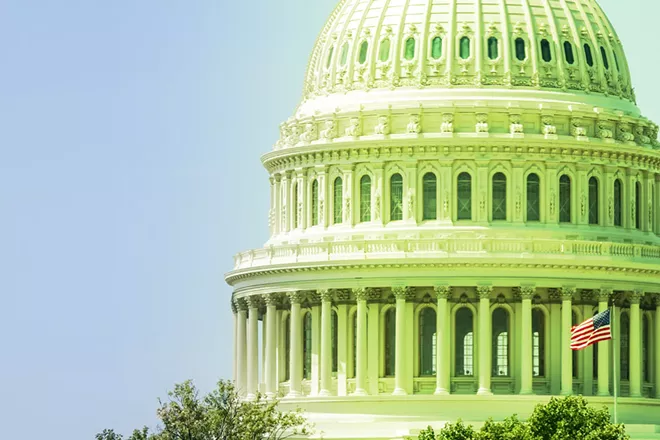A bill that would liberalize cannabis policy at the federal level is emerging from the conservative side of the aisle.
Marijuana Moment reported last week that Rep. Nancy Mace, a South Carolina Republican, has drafted legislation that would deschedule cannabis federally. Removing cannabis from Schedule I of the Controlled Substances Act would legalize it in the United States. The bill, titled the States Reform Act, is an attempt to bring Republican lawmakers on board with largely Democratic efforts to legalize cannabis by tying in one of the pillars of the GOP platform: states' rights.
According to Marijuana Moment's reporting, the bill would legalize cannabis without changing any of the existing state-level markets or regulations. The federal government's role in regulating cannabis would be similar to its role with alcohol.
While Democrats have been leading the push for legalization, more and more Republicans have been coming around on the proposition. Earlier this year, Rep. David Joyce, R-Ohio, introduced the Common Sense Cannabis Reform for Veterans, Small Businesses, and Medical Professionals Act, which is currently stuck in committee. Mace, who is behind the current Republican proposal, was a cosponsor of Joyce's bill along with Alaska Republican Don Young.
"It's past time for Congress to recognize that continued cannabis prohibition is neither tenable nor the will of the American electorate," Joyce said in a statement when he introduced his bill.
According to a poll conducted by the Pew Research Center published in April, 60 percent of Americans believe cannabis should be legal for medical and recreational use. Among those who lean Democrat, the number in support is 72 percent. There isn't a majority in support among Republican-leaning Americans, but it's close with 47 percent in favor.
Republican support in Congress is critical because of the current balance of power in the Senate. Democrats passed legalization legislation through the House in December 2020, but the 50-50 split in the Senate means the party needs all of its members on the Senate side to vote in favor, and potentially 10 Republicans to join in as well to avoid a filibuster.
These recent developments from the right could draw more Republican support than the proposals from the left. One major sticking point of the Democratic plans, taxation for social justice programs, is not part of either plan put forward by Mace or Joyce. Under both Republican proposals, that matter would be left to the states. ♦





















